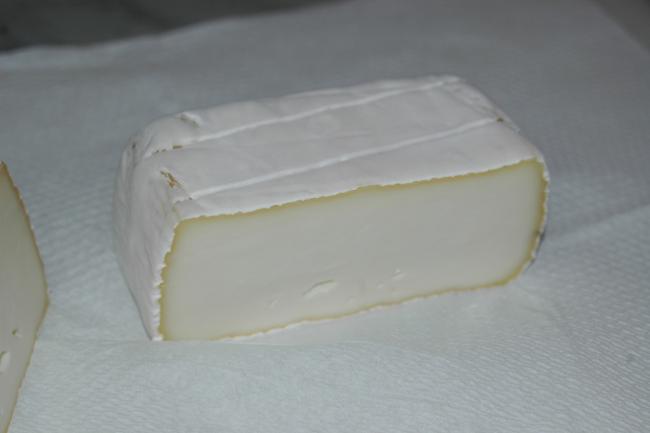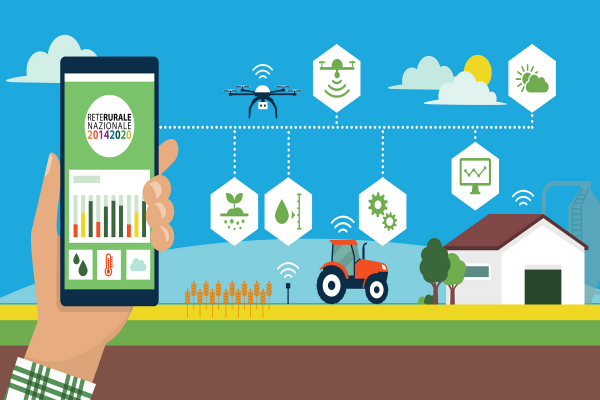Application of process and product innovations for the development of the milk chain in Basilicata

The crisis of the market of cow milk and dairy products, traditional or industrial, move the farmers and dairy entrepreneurs to look for innovations. The project aims to answer to this demand for innovation by means of mature innovative technologies to the whole animal production chain in Basilicata region: cattle, jenny, goat farms and dairies. The opportunities offered by the Lucanian Research Entities, by means of a two-fold approach combining tradition and innovation, of process as well as product, would represent an occasion of development for the whole chain, “from farm to fork”, also organisationally.
The activities are: preparatory and adaptation of innovation – standardization of jenny's milk chain, innovative cheese-making technologies and milk enriching with functional fibres. Evaluation and definition of the best cheese-making technologies and optimization of the goat cheese chain. Introduction of ready innovations into partners’ farms by means of sensory cheese evaluation and field-days. Diffusion of ready innovations and results by means of web site, press, workshops and final meeting, production of audiovisual material.
Artichoke rennet cheeses. The results of this innovation cover two branches: the vegetable production, (artichoke) and dairy.
In the first case, thanks to the use of the last crop of artichokes, which has a low price so that does not cover the labor costs, horticultural companies can sell at a higher price the heads of the last harvest. In fact artichokes will have added value as they will be used for the production of rennet.
In the latter case, the dairy sector will be able to produce innovative cheeses that will fill new niche markets, both domestic and national, which are expanding, namely those of innovative products and of non-animal rennet cheeses. In fact, demand for novelty and cheeses for "vegetarians" is growing in the Southern Italy, but also at national and international level. These products are, in fact, very competitive, both for technology and taste. Moreover, the new plants that supply the vegetable rennet, yet to be created in the case of adoption of the innovation, will allow the development for employment, and especially for women, as this category is naturally highly suited to this particular activity.
This innovation concerns three sub-sectors of the dairy chain: bovine milk, in crisis; jenny livestock, biodiversity at risk; and dairy, thirsty for diversification. The standardization of jenny’s milk production will allow the elimination of process critical points by improving and / or modifying breeding and milking, storing and milking procedures. It will also provide breeders with a new work-process planning. This increased production efficiency translates into increased productivity and income, which contributes to the "active" preservation of biodiversity. This precious milk has important antibacterial properties for the presence of lysozyme, an enzyme that represents a potential alternative to egg lysozyme and used to fight swelling in cow and sheep milk cheeses.
The technology for the production of vaccine cheeses with the addition of jenny’s milk, previously studied and standardized during the project, represents the possibility of producing cheeses of constant quality and replicable. The cheeses obtained in the three variants (three stages of ripeness and thus consistency and different flavors) will be unique and versatile in the possibilities of use, both in terms of consumption as well as in the preparation of elaborate dishes, thus intercepting a target of consumers as wide as possible, aiming at a wide range of potential buyers different for texture and flavor. As aforesaid, it will tend to obtain a product of high palatability, delicate but with character, especially in the longer seasoning.
The application of this innovation consists of validated technologies for the production of low-fat cheeses, cow's milk, donkey’s, goat's, sole or mixtures, with improved consistency through enrichment with food fibers having aggregate capacity: inulin and pectin.
These cheeses will respond to the need to develop new dairy products for the pressing market demand for low-calories and "functional" products for health but good to the palate. The use of donkey milk for partial (or total) replacement of cow's milk could be a valid approach for low-fat cheeses. Donkey milk, in fact, has a lower fat content than cow's milk, but this characteristic may be an obstacle to the development of cheeses of adequate consistency. Production difficulties can be overcome by adding natural aggregates such as inulin and pectin. From a nutritional point of view, inulin has many properties, including pre-biotics, favoring digestion, reducing intestinal gas. Another very interesting aspect of the use of inulin is its nutraceutical properties because it is able to prevent diseases such as diabetes or cardiovascular (due to increased fat in the blood) and the onset of colon cancer. Another aspect to consider is the prebiotic function attributed to inulin with increased Bifidobacterium density and decreased levels of pathogenic bacteria. The simultaneous use of donkey milk and inuline could be an important innovation in the milk dairy chain.
This innovation provides a new organizational model and new techniques and new products. Organizational model that starts from breeding, continues in collecting the milk, till cheese processing and marketing. A model that is at the basis of the future Lucanian goat chain.
Indeed, the main objective at the base of this product is to offer a new development opportunity to the goat farms of Basilicata, where, of all the livestock species reared, goat is certainly the one that lacks the greatest delays from the innovation point of view.
Ultimately, the products will be: a new organizational model of the goat's compartment, adapted to Lucanian requirements; new dairy products obtained from goat's milk; new business strategies for these products. The main product here, in this case, is that all the players in the chain will work in an integrated and productive way, and this, for the reality of the Basilicata region, would be an absolute innovation.
| Titolo/Descrizione | Url | Tipologia |
|---|---|---|
|
CREA
|
Link ad altri siti che ospitano informazioni del progetto
|
|
|
UNIBAS SAFE
|
Link ad altri siti che ospitano informazioni del progetto
|
|
|
EVOLUTIONCISF
|
Link ad altri siti che ospitano informazioni del progetto
|
|
|
Fresca Italia
|
Link ad altri siti che ospitano informazioni del progetto
|
|
|
Pagina Facebook del progetto
|
Link ad altri siti che ospitano informazioni del progetto
|
|
|
Brochure Progetto INNOPROLATTE
|
Materiali utili
|
|
|
Secondo appuntamento con i seminari del progetto INNOPROLATTE
|
Materiali utili
|
|
|
Video del progetto
|
Materiali utili
|
|
|
Primo appuntamento con i seminari del progetto INNOPROLATTE
|
Materiali utili
|
|
|
Poster del progetto InnoProLatte
|
Materiali utili
|
